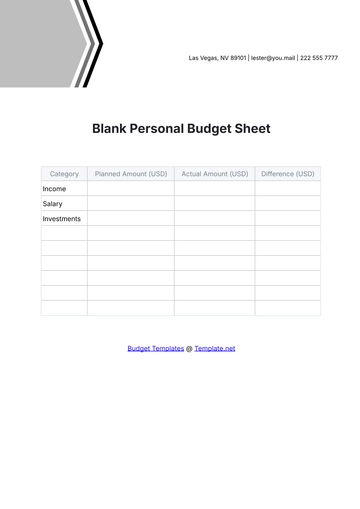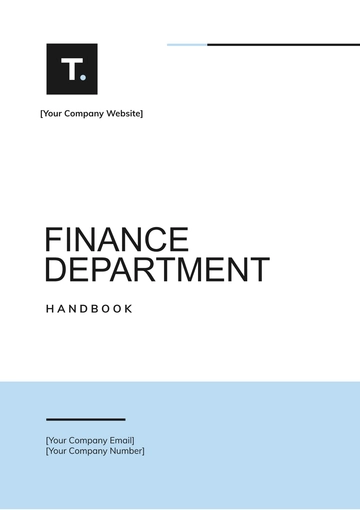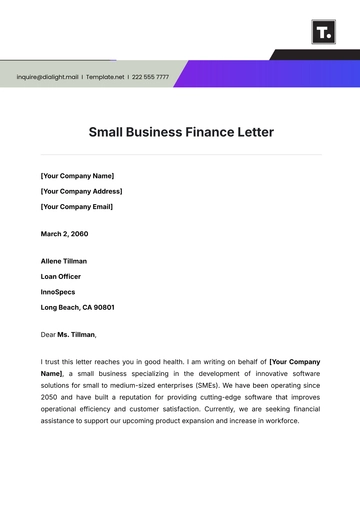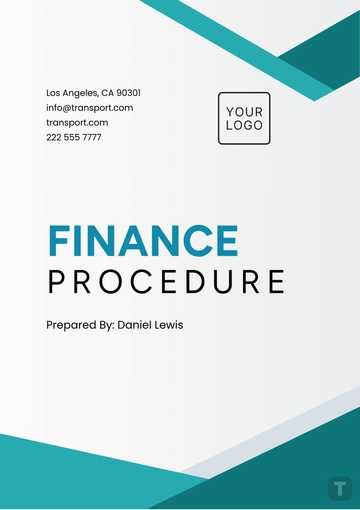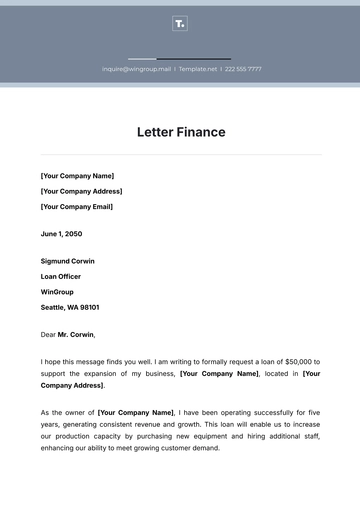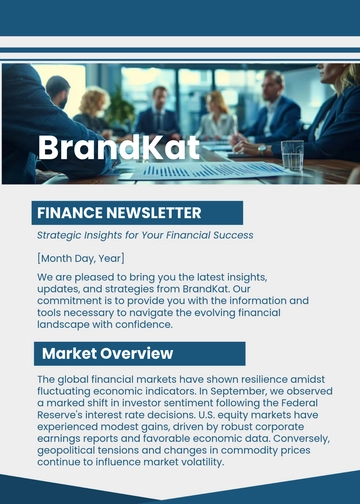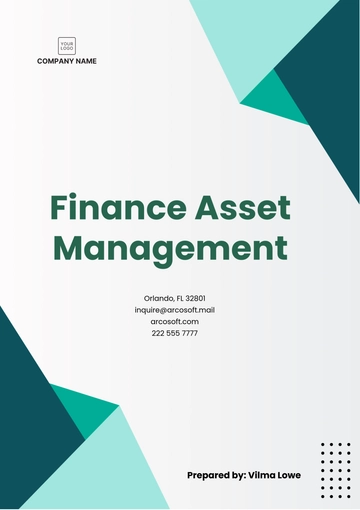Free Finance Article
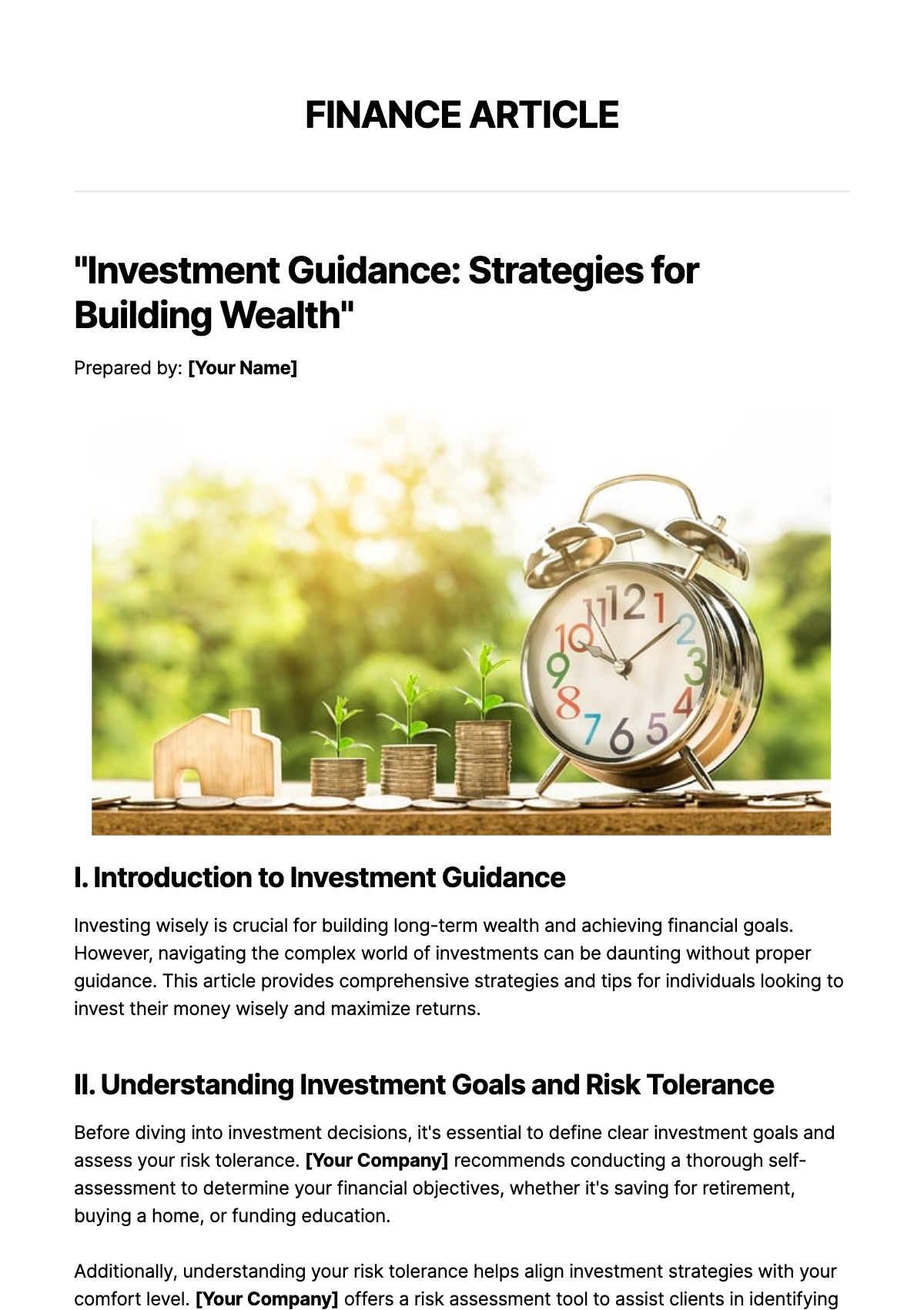
"Investment Guidance: Strategies for Building Wealth"
Prepared by: [Your Name]

I. Introduction to Investment Guidance
Investing wisely is crucial for building long-term wealth and achieving financial goals. However, navigating the complex world of investments can be daunting without proper guidance. This article provides comprehensive strategies and tips for individuals looking to invest their money wisely and maximize returns.
II. Understanding Investment Goals and Risk Tolerance
Before diving into investment decisions, it's essential to define clear investment goals and assess your risk tolerance. [Your Company] recommends conducting a thorough self-assessment to determine your financial objectives, whether it's saving for retirement, buying a home, or funding education.
Additionally, understanding your risk tolerance helps align investment strategies with your comfort level. [Your Company] offers a risk assessment tool to assist clients in identifying their risk tolerance profile.
III. Understanding Different Retirement Accounts
A. Types of Retirement Accounts
Several retirement account options are available, each with its benefits and limitations. Choosing the right one can significantly impact your future savings. Below is an overview of the most common types:
401(k) Plans
Individual Retirement Accounts (IRAs)
Roth IRAs
403(b) Plans
Simplified Employee Pension (SEP) IRAs
B. Comparison Chart
The following chart provides a comparative glance at the different accounts:
Account Type | Tax Advantage | Contribution Limit | Withdrawal Rules |
|---|---|---|---|
401(k) | Pre-tax | $19,500 | Penalty before 59.5 years |
IRA | Both pre and post-tax options | $6,000 | Penalty before 59.5 years |
Roth IRA | Post-tax | $6,000 | Tax-free withdrawals after 59.5 years |
403(b) | Pre-tax | Varies | Penalty before 59.5 years |
IV. Effective Strategies for Maximizing Your Contributions
A. Start Early
One of the most effective strategies is to start your retirement savings as early as possible. The power of compound interest can significantly increase your retirement pot over the years.

B. Utilize Employer Match
Many employers offer a matching contribution to your 401(k) plan. Always strive to contribute at least enough to get the full match offer, as it is essentially free money.
C. Increase Contributions Gradually
As your career progresses, aim to increase your contributions incrementally. A good strategy is to increase contributions with every salary hike.
D. Diversification
Do not put all your eggs in one basket. Diversifying your investment within your retirement account can help manage risk and tap into different growth opportunities.
V. Diversification: Key to Mitigating Risks
Diversification is a fundamental principle of investing that involves spreading your investment across various asset classes to minimize risks. [Your Company] emphasizes the importance of building a well-diversified investment portfolio tailored to your financial goals and risk tolerance.
This may include allocating assets across stocks, bonds, real estate, and alternative investments such as commodities or REITs. By diversifying your portfolio, you can reduce the impact of market fluctuations on your overall investment performance.
VI. Investment Strategies for Different Life Stages
Different life stages require different investment strategies. Whether you're just starting your career, planning for retirement, or nearing retirement age, [Your Company] provides personalized investment guidance to meet your evolving needs.
For young investors, we recommend focusing on long-term growth opportunities with a higher allocation to equities. As you approach retirement, our advisors can help transition your portfolio to a more conservative allocation to preserve capital and generate income.
VII. Monitoring and Rebalancing Your Portfolio
Regular monitoring and rebalancing of your investment portfolio are essential to ensure it remains aligned with your investment goals and risk tolerance. [Your Company] offers ongoing portfolio management services, including periodic reviews and rebalancing to adjust asset allocations based on market conditions and changes in your financial situation.
Our team of experienced advisors closely monitors your portfolio's performance and makes recommendations to optimize returns while managing risks effectively.
VIII. Conclusion

Investing wisely requires careful planning, disciplined execution, and ongoing monitoring to achieve long-term financial success. [Your Company] is committed to providing expert investment guidance and personalized solutions to help clients navigate the complexities of the financial markets. Contact us today to schedule a consultation and take the first step toward building a secure financial future.
- 100% Customizable, free editor
- Access 1 Million+ Templates, photo’s & graphics
- Download or share as a template
- Click and replace photos, graphics, text, backgrounds
- Resize, crop, AI write & more
- Access advanced editor
Introducing the Finance Article Template by Template.net! Craft compelling finance pieces effortlessly with this editable and customizable gem. Seamlessly tailor content to your needs using our AI Editable Tool. Unlock unlimited creativity and efficiency, all in one package. Elevate your finance writing game with our template, the ultimate tool for professionals and enthusiasts alike.
